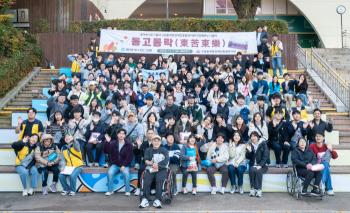Professor Park Hyun-jin's team at Hallim University's Gangnam Sacred Heart Hospital won the Excellence Paper Award of the Korean Orthopedic Society...Proven effectiveness of bi-directional endoscopic spinal surgery
Nov 10, 2025
A research team led by Professor Park Hyun-jin of orthopedic surgery at Hallim University Gangnam Sacred Heart Hospital (Professor Park Sang-min of Bundang Seoul National University Hospital, Professor Song Kwang-seop of Chung-Ang University Hospital, and Professor Yoo Ki-han of Hallim University Gangnam Sacred Heart Hospital) won the Korean Orthopedic Association's Outstanding Paper Award for presenting a new standard for treating lumbar intervertebral disc escape. The award-winning paper was published in the latest issue of the international journal of orthopedic surgery 'The Bone & Joint Journal (IF 5.4)'Comparing the Effectiveness and Safety of minimally invasive bipolar endoscopic surgery and microscopic surgery.
Lumbar intervertebral disc escapism (back disk) is a disease that causes back pain, sciatic nerve pain, and leg numbness by the internal nucleus of the lumbar intervertebral disc ruptures and compresses the nerves.
The surgical method mainly performed for lumbar intervertebral disc herniation is 'microscopic Lumbar Discectomy (MD)', which is a method of cutting the lumbar muscle by about 30 to 40 mm and removing the leaked male nucleus while confirming it with a surgical microscope. This is faster to recover and less pain than open surgery in the past, but there is a limitation in that damage, scarring, and pain are inevitable in the process of spreading muscles.
Accordingly, Professor Hyun-jin Park's team recruited 100 people who underwent surgery for lumbar intervertebral disc herniation from six hospitals in Korea from July 2021 to September 2022 and conducted a multicenter prospective randomized controlled trial comparing 'Biportal Endoscopic Discectomy (BED)' with 'Micrographic Discectomy'.
Minimally invasive 'Biportal Endoscopic Discectomy (BED)' It is a surgical method in which only about 7mm to 10mm is incised in two lumbar parts and the water nucleus is removed while checking the affected area with an endoscopic camera.
Subject patients were followed up for 12 months and comprehensively analyzed ▲ function recovery score ▲ early recovery indicators such as pain, muscle damage, and scar ▲ whether complications occurred.
As a result, the average functional recovery score at 12 months after surgery was statistically similar with 10.92 points in the BED group and 10.38 points in the MD group, and the BED group was significantly better in early recovery indicators such as pain and muscle damage and incision length. In particular, the incision length was 15.8mm in the BED group, less than half of that in the MD group (33.1mm), and the BED group's incidence of wound opening was confirmed to be stable with zero cases.
Professor Hyunjin Park "The first multicenter randomized controlled study demonstrates that bilateral endoscopic disc resection is clinically superior in terms of early recovery such as pain, scarring, and muscle damage while maintaining the same functional recovery effect as conventional microscopic surgery."It could be used as a new initial treatment option for young women or office workers who are sensitive to recovery speed or cosmetic outcomes."
Lumbar intervertebral disc escapism (back disk) is a disease that causes back pain, sciatic nerve pain, and leg numbness by the internal nucleus of the lumbar intervertebral disc ruptures and compresses the nerves.
The surgical method mainly performed for lumbar intervertebral disc herniation is 'microscopic Lumbar Discectomy (MD)', which is a method of cutting the lumbar muscle by about 30 to 40 mm and removing the leaked male nucleus while confirming it with a surgical microscope. This is faster to recover and less pain than open surgery in the past, but there is a limitation in that damage, scarring, and pain are inevitable in the process of spreading muscles.
Accordingly, Professor Hyun-jin Park's team recruited 100 people who underwent surgery for lumbar intervertebral disc herniation from six hospitals in Korea from July 2021 to September 2022 and conducted a multicenter prospective randomized controlled trial comparing 'Biportal Endoscopic Discectomy (BED)' with 'Micrographic Discectomy'.
Minimally invasive 'Biportal Endoscopic Discectomy (BED)' It is a surgical method in which only about 7mm to 10mm is incised in two lumbar parts and the water nucleus is removed while checking the affected area with an endoscopic camera.
Subject patients were followed up for 12 months and comprehensively analyzed ▲ function recovery score ▲ early recovery indicators such as pain, muscle damage, and scar ▲ whether complications occurred.
As a result, the average functional recovery score at 12 months after surgery was statistically similar with 10.92 points in the BED group and 10.38 points in the MD group, and the BED group was significantly better in early recovery indicators such as pain and muscle damage and incision length. In particular, the incision length was 15.8mm in the BED group, less than half of that in the MD group (33.1mm), and the BED group's incidence of wound opening was confirmed to be stable with zero cases.
Professor Hyunjin Park "The first multicenter randomized controlled study demonstrates that bilateral endoscopic disc resection is clinically superior in terms of early recovery such as pain, scarring, and muscle damage while maintaining the same functional recovery effect as conventional microscopic surgery."It could be used as a new initial treatment option for young women or office workers who are sensitive to recovery speed or cosmetic outcomes."
|
This article was translated by Naver AI translator.














